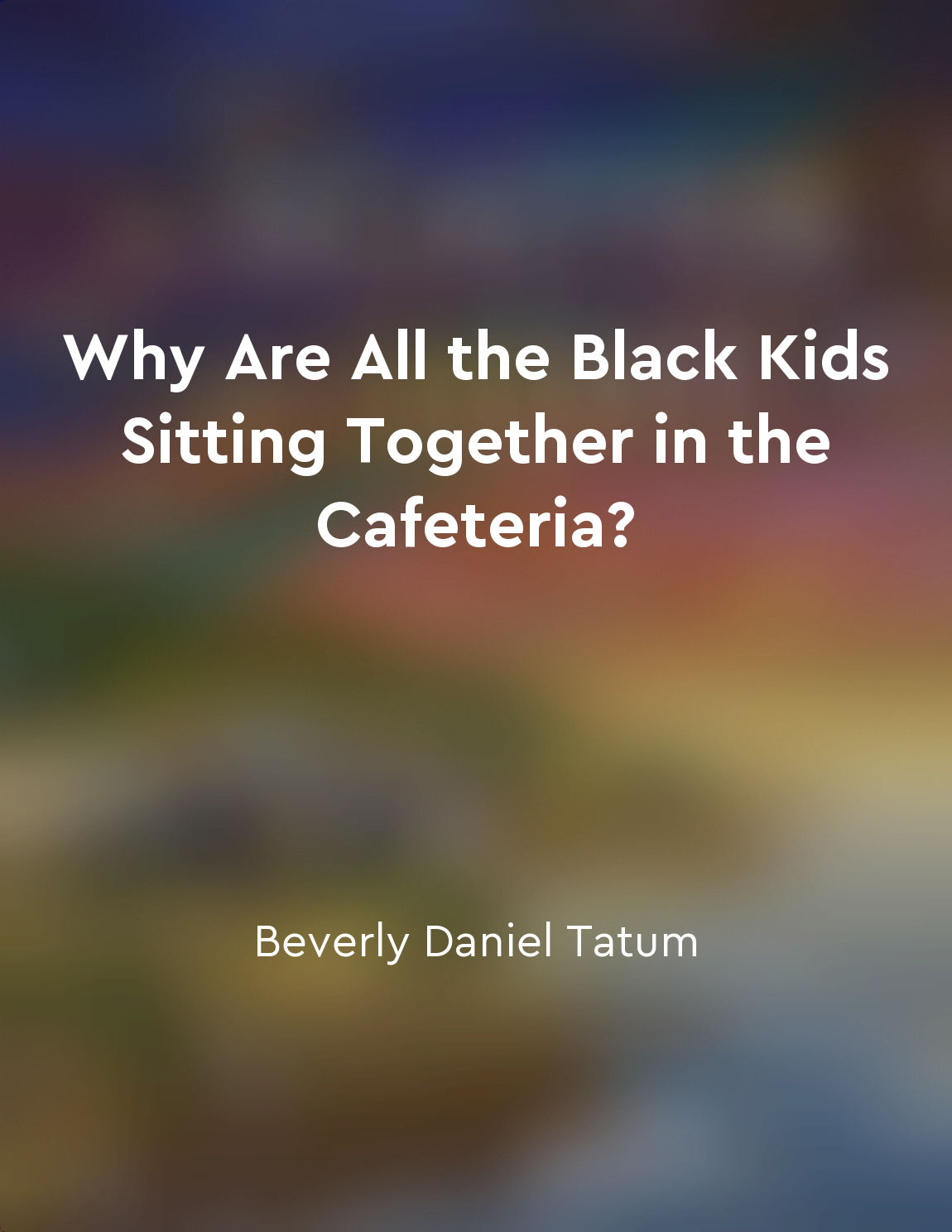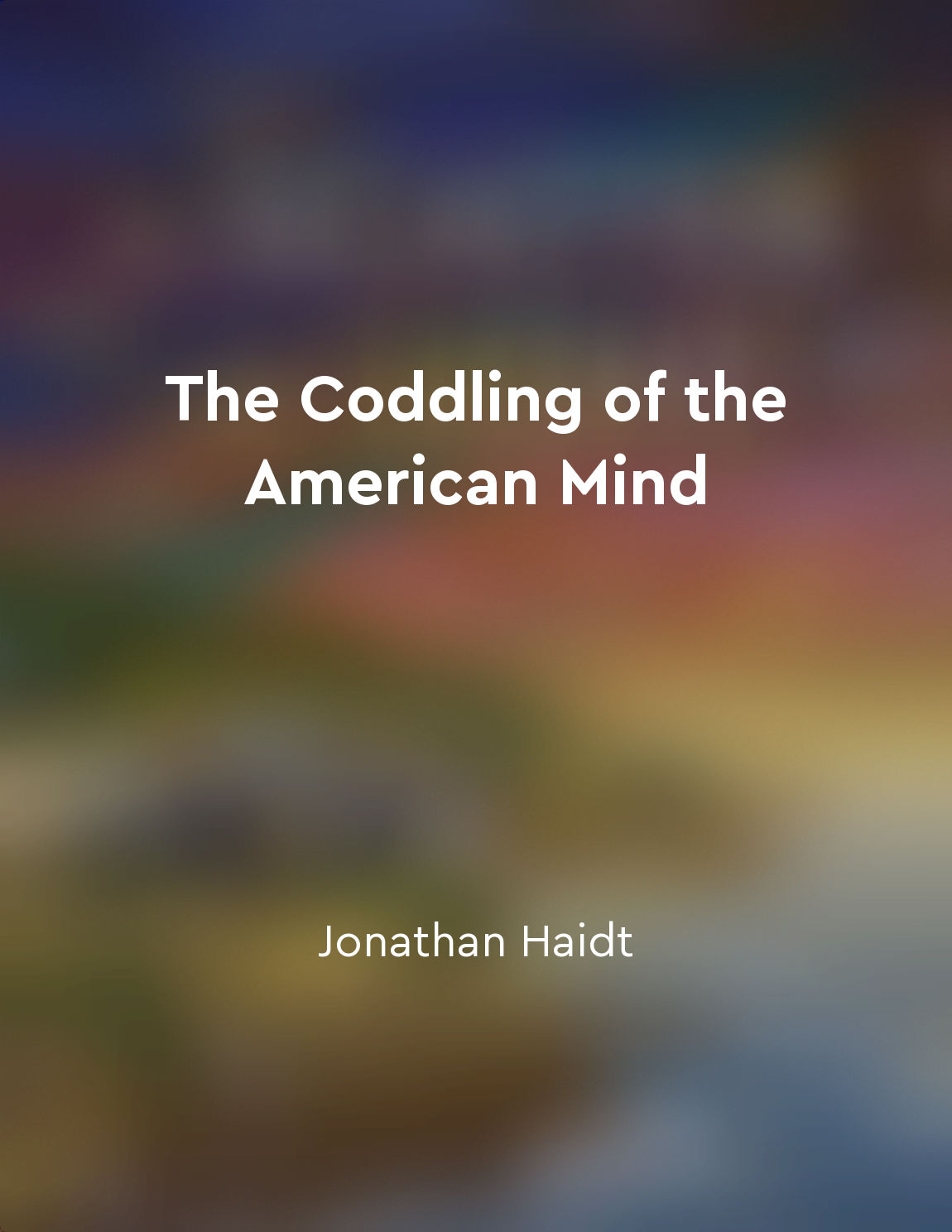The curriculum reflects dominant ideologies from "summary" of Schools and Society: A Sociological Approach to Education by Jeanne H. Ballantine,Joan Z. Spade
The curriculum reflects dominant ideologies, serving as a powerful tool for transmitting societal values and beliefs to students. These ideologies shape the content of what is taught in schools, influencing students' understanding of the world around them. By embedding dominant ideologies within the curriculum, schools reinforce the status quo and perpetuate existing power structures. Through the selection of certain subjects, topics, and perspectives, the curriculum reflects the values and beliefs of the dominant culture. For example, the emphasis on Eurocentric history in many curricula marginalizes the experiences and contributions of non-dominant groups. This not only distorts students' understanding of history but also perpetuates a biased view of the world. Furthermore, the curriculum often promotes certain ways of thinking and behaving that align with dominant ideologies. For instance, the emphasis on competition and individualism in the curriculum reflects the values of capitalism, encouraging students to prioritize personal success over collective well-being. This reinforces existing power dynamics and perpetuates inequalities within society. In addition, the curriculum can also serve to legitimize existing social hierarchies by presenting them as natural and inevitable. For example, the absence of discussions about systemic racism or sexism in the curriculum can lead students to believe that these forms of oppression are not significant or do not exist. This reinforces the status quo and discourages critical thinking about power dynamics in society.- The curriculum plays a crucial role in shaping students' beliefs, values, and attitudes towards society. By reflecting dominant ideologies, the curriculum can either challenge or reinforce existing power structures, influencing students' understanding of the world and their place within it. It is essential to critically examine the curriculum and consider how it may be perpetuating inequalities and biases within society.
Similar Posts

All students deserve to feel valued and supported
In a diverse educational environment, it is essential that all students feel valued and supported. This means creating a school...
Fostering effective communication skills
Developing effective communication skills is essential for individuals to thrive in today's complex and interconnected world. C...
Identity shapes our perspectives and interactions
Our identities, shaped by our personal experiences and backgrounds, play a significant role in how we perceive the world around...
Collaborative efforts are needed to dismantle systemic barriers in education
To address the systemic barriers in education, it is essential for all stakeholders to come together and work collaboratively. ...
Fighting against racism is a continual effort
The fight against racism is not a battle that can be won overnight. It is a long and arduous journey that requires constant vig...
Cultural tastes are not purely individual choices
To understand cultural tastes as more than individual preferences is to acknowledge that they are shaped by social forces beyon...

Free speech enables progress and innovation
The ability to freely express ideas and opinions is crucial for progress and innovation. When individuals are able to share the...
Freedom is achieved through praxis
In order to understand the concept that liberation is only achievable through action, we must delve into the idea of praxis. Pr...
Educational systems can either reproduce or disrupt inequalities
The educational system plays a critical role in shaping our society. It can either perpetuate existing inequalities or work tow...

